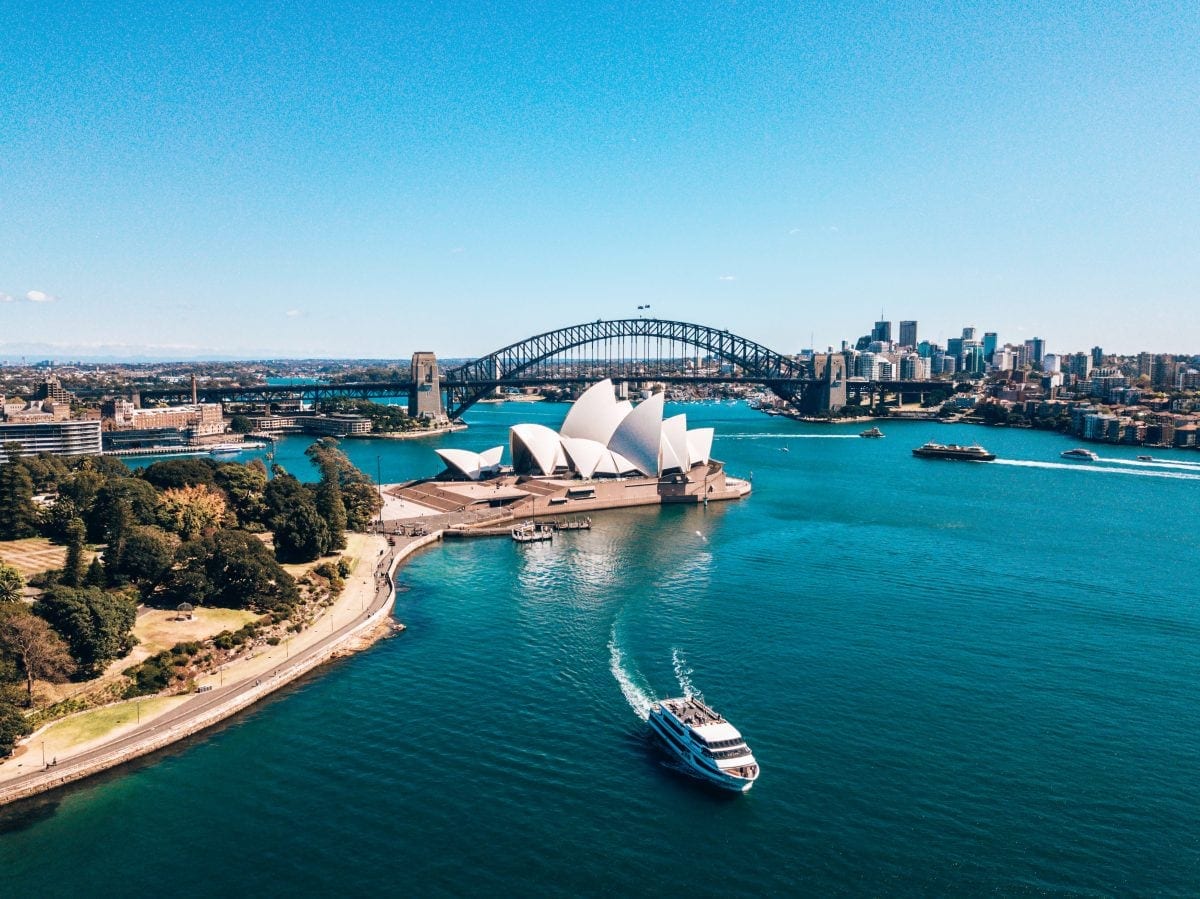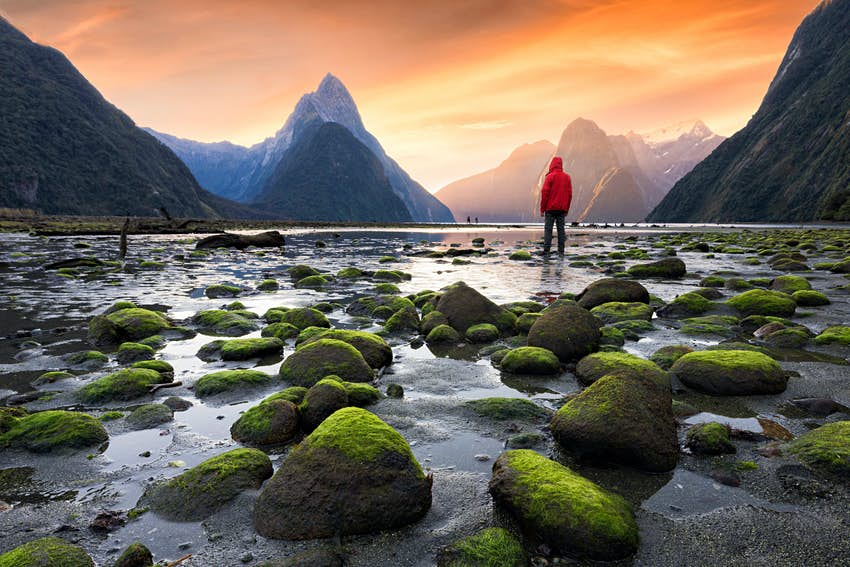
Travel restrictions and exemptions – Australia COVID 19 & the border
Covid 19 Australia: Coronavirus (COVID-19) advice for international travellers: Biosecurity measures and travel restrictions are in place to help prevent the spread of COVID-19. Read below about what measures are in place when travelling in or out of Australia & New Zealand.
————————–
1. Australia – Covid 19 Australia
Only Australian citizens, permanent residents and their immediate family can travel to Australia at this time. If you are travelling to Australia, you may be subject to mandatory quarantine. Also, there are also specific requirements for travel from and to Australia during the pandemic. Check the details here when leaving Australia and here when departing for Australia.
But from 19 April 2021, travellers coming from safe zones in New Zealand will not be required to enter managed isolation or quarantine on arrival in Australia.
You can find more details on the Australian government website.
Effective 18 April 2021, international transit/transfer between Australia and New Zealand (and vice versa) will be suspended.
COVID‑19 testing requirements
However, effective 22 January 2021, all passengers travelling to, or transiting Australia must provide evidence of a negative COVID‑19 (PCR) test result taken 72 hours or less prior to the scheduled departure time of the traveller’s flight (or first flight if the traveller has one or more connecting flights booked for their travel to Australia).
Passengers who have previously been diagnosed with COVID‑19 will only be able to travel if they provide clearance documentation from a medical provider which clearly documents that:
- At least 14 days have passed since the onset of symptoms or initial positive COVID‑19 PCR test if asymptomatic.
- There has been clinical resolution of fever and respiratory symptoms of the acute illness for the previous 72 hours.
- That you previously had COVID‑19 but are now recovered and not considered to be infectious.
Link to fact sheets: Coronavirus (COVID‑19) FAQs for international travellers to Australia | Australian Government Department of Health
Exemptions to pre‑departure testing:
- Children less than four years of age; (exemption automatically granted based on age on passport)
- People with a relevant medical condition (who can provide a medical certificate. For more information on exemptions, please view our FAQs for international passengers.)
- International air crew
- Travellers entering Australia on a ‘Green Safe Travel Zone’ flight. (Note: new conditions apply to Green Safe Travel Zone flights – see above and below).
- Passengers travelling from countries where no COVID‑19 PCR testing available, as determined by the Australian Government
- Exceptional circumstances.
The FAQ’s and further information is available here.
Required forms
All travellers to Australia should complete the Australia Travel Declaration 72 hours minimum before they fly to Australia. Failure to complete the Australia Travel Declaration can cause delays at check in and may result in further delays on arrival in Australia.
But diplomats are not required to complete the form.
Some Australian States also require separate border declaration forms which are outlined below.
Quarantine
In addition, there are specific guidelines, requirements and fees for mandatory quarantine in each state.
Other Information
Covid 19 Australia: Passengers travelling to Australia must wear a mask for the duration of the flight, and in Australian airports. Passengers should also wear masks in the airport prior to boarding. Information on passengers who are exempt from the mask wearing requirement can be found here.
Sydney
Covid 19 Australia: All passengers who have been in a country other than Australia or New Zealand within 14 days of arrival into Sydney must undergo mandatory quarantine in government‑arranged accommodation for 14 days at their own expense.
However, the hotel quarantine fee includes meals and hotel room costs. For details, refer to https://www.revenue.nsw.gov.au/news‑media‑releases/covid‑19‑tax‑relief‑measures/quarantine‑fees
Please visit the NSW Government Health website for more details.
Brisbane
Covid 19 Australia: All passengers who have been in a country other than Australia or New Zealand within 14 days of arrival into Brisbane must undergo mandatory quarantine in government‑arranged accommodation for 14 days at their own expense.
The hotel quarantine fee includes meals and hotel room costs. For details, refer to this website.
However, All passengers arriving into Queensland from an international port must complete a Queensland International Arrivals Registration form 72 hours in advance of their arrival. Visit https://www.qld.gov.au/internationalarrivalstoqld.
Perth
Covid 19 Australia: All international passengers arriving into Western Australia from overseas must undergo quarantine in government‑arranged accommodation for 14 days at their own expense.
However, the quarantine fee includes meals and hotel room costs. Details can be found at https://www.wa.gov.au/government/publications/paying‑hotel‑quarantine‑wa‑frequently‑asked‑questions
G2G pass to enter WA:
Interstate and international arrivals must complete a G2G PASS declaration to enter Western Australia. This must be completed and submitted prior to travel, at the G2G PASS website. Once your G2G PASS declaration has been processed, you will receive a confirmation email with a unique QR code, and the terms and conditions that apply.
For more information see https://www.wa.gov.au/government/covid‑19‑coronavirus
Melbourne
Covid 19 Australia: All passengers who have been in a country other than Australia or New Zealand within 14 days of arrival into Melbourne must undergo mandatory quarantine in government‑arranged accommodation for 14 days at their own expense. The quarantine fee includes hotel room costs and meals.
Arriving passengers coming to Melbourne must also complete the Victorian Quarantine Arrival form. Details are available at: https://www.coronavirus.vic.gov.au/mandatory‑quarantine‑returned‑overseas‑travellers
For more information on travel eligibility and quarantine requirements, please visit the Victorian Department of Health website.
If you’re travelling to Australia, please check our page: Things to do in Australia
If you’re travelling to Central Australia, please check our page: Things to do in Central Australia
2. New Zealand
The New Zealand border is currently closed to almost all travellers. If you are travelling to New Zealand, you are required to seek approval and book accommodation at a managed isolation facility before travel.
From 11:59pm on 28 April 2021, only the following categories of passengers travelling from very high‑risk countries will be accepted for travel to New Zealand:
- New Zealand citizens
- Partners and dependent children of New Zealand citizens
- Parents of dependent children who are New Zealand citizens
Partners of New Zealand citizens can be a spouse, civil union partner or de‑facto partner.
If you’re a non‑New Zealand citizen, you must hold a valid visa to enter New Zealand.
The following countries are currently considered very high risk:
- Brazil
- India
- Pakistan
- Papua New Guinea
To clarify, all other travellers, including people holding residence class visas, must spend at least 14 days outside of very high risk countries before flying to New Zealand. Transit through a very high risk country is excluded from the 14 day requirement.
On the other hand, all passengers from very high risk countries must present a negative COVID‑19 PCR test certificate from a government‑approved laboratory for a test taken 72 hours before travel. Any other type of test for COVID‑19 will not be accepted. Please refer to the government website.
COVID‑19 testing requirements
Effective 23:59 (NZT) 25 January 2021, all passengers, except those arriving from Australia, Antarctica, Albania, Belize, Dominica, Kenya, Laos, Montenegro, Myanmar, Slovenia, St Kitts and Nevis, St Vincent, the Grenadines, Tajikistan, Turkmenistan and Pacific Islands listed here, must present a negative COVID‑19 PCR certificate for a test taken no more than 72 hours prior to departure of the first flight.
Accepted tests:
- RT ‑ PCR
- LAMP/ Antigen
Test specifications:
Testing labs must be able to issue a passenger with a dated report that includes the following information.
- passenger’s name
- passenger’s date of birth and/or passport number;
- date and time the test was conducted
- name of testing lab
- test type
- test result.
COVID‑19 test exemptions:
- children less than two years of age;
- diplomatic and consular personnel, and New Zealand Defence Force personnel, who are currently exempt from the Air Border Order and/or managed COVID‑19 Public Health Response (Isolation and Quarantine) Order 2020;
- individuals granted permission to enter New Zealand for humanitarian reasons, including medical evacuations from the Pacific;
- individuals arriving in New Zealand by air from Antarctica.
- A passenger who has recovered from COVID‑19 must provide a medical certificate, after being examined by a medical practitioner within the 72‑hour window, stating the date of the previous positive test and that the passenger is no longer infectious with COVID‑19.
Quarantine
All passengers arriving into New Zealand on or after the 3 November 2020 must book accommodation at a managed isolation and quarantine facility before travel and must hold the “MIQ” voucher upon arrival in New Zealand. Passengers can get a voucher for their stay from the Managed Isolation Allocation System website. A printed or digital copy of the voucher must be presented at check‑in. By 3 November, passengers arriving into New Zealand will not be accepted if they do not have this voucher. For more details, please visit the Managed Isolation and Quarantine website.
Effective 16 April, MIQ will change the process at managed isolation and quarantine facilities as additional protections and processes are put in place. That is to say, this may add time to the arrivals process. For more information, please visit the Auckland Airport website.
Travel Eligibility
The following categories of passengers may travel to and enter New Zealand without first seeking approval:
- New Zealand citizens, permanent residents and residents with valid travel conditions (excluding people granted a resident visa outside New Zealand and who are travelling to New Zealand on that resident visa for the first time).
- Partners, dependent children (aged 19 years or under if they hold a temporary visa or 24 and under if they hold a resident visa) of New Zealand citizens or residents who hold a visa based on their relationship with a New Zealand citizen or resident partner or parent.
- Diplomats who hold a post in New Zealand.
On the other hand, passengers may be allowed to travel to and enter New Zealand while the border is closed in the following instances:
- You qualify as someone to whom the border closure does not apply, or
- If NZ immigration considers that the passenger has a critical purpose for travel while the border is closed and thereby grants a visa which recognises this.
However, From 19 April 2021, passengers travelling from safe zones in Australia will not be required to enter managed isolation or quarantine on arrival in New Zealand.
You can find more details on the New Zealand government website.
Effective 18 April 2021, international transit/transfer between Australia and New Zealand (and vice versa) will be suspended.
In other words, transit arrangements that detail who may transit New Zealand are published by Immigration NZ and available on their website.
Domestic connections are not permitted directly upon arrival in New Zealand. To clarify, all passengers must end their journey at the point of entry.
Required forms
Firstly, to gain approval to travel under one of these reasons, passengers must:
- Submit a request to INZ
- Apply for a visa or variation of conditions, which if approved will allow them entry.
Other information
For further details please refer to the Ministry of Health website.
If you’re travelling to New Zealand, please check our page: Things to do in New Zealand





